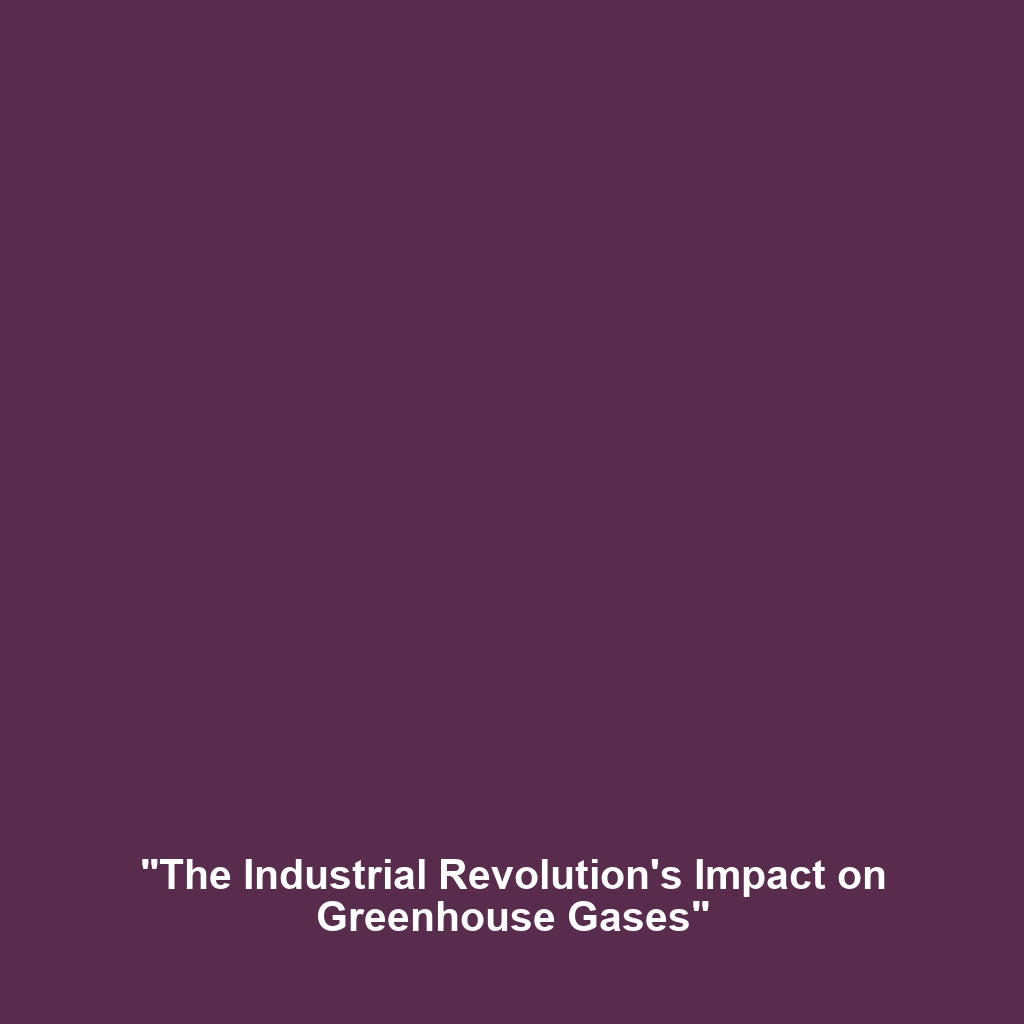The Industrial Revolution and Greenhouse Gases: A Climate History Perspective
The Industrial Revolution, a period of major industrialization from the late 18th to early 19th century, significantly altered human society and contributed to the rise of greenhouse gases. This crucial epoch not only accelerated technological advancements but also laid the groundwork for climate change as we know it today. Understanding the relationship between the Industrial Revolution and greenhouse gases is vital for grasping our current climate crisis and making informed decisions about our planet’s future. In this article, we delve into key concepts, real-world applications, challenges, and prospective research relevant to this significant intersection of history and environmental science.
Key Concepts of the Industrial Revolution and Greenhouse Gases
To fully appreciate the impact of the Industrial Revolution on climate history, it is essential to examine several major concepts:
1. The Rise of Fossil Fuels
The Industrial Revolution marked a paradigm shift from agrarian economies to industrialized ones, primarily fueled by coal, oil, and natural gas. These fossil fuels release significant amounts of carbon dioxide (CO2) and methane (CH4), two potent greenhouse gases, into the atmosphere.
2. Urbanization and Emissions
With the growth of factories, urban areas expanded rapidly, leading to increased transportation needs and higher emissions. This urbanization not only changed economic landscapes but also contributed to pollution and climate change.
3. Technological Advancements
Innovations such as the steam engine and mechanized textile production revolutionized industries but also intensified the use of fossil fuels, escalating greenhouse gas emissions.
Applications and Real-World Uses
The repercussions of the Industrial Revolution and its greenhouse gas emissions have real-world applications in analyzing climate history:
- Policy Development: Understanding the relationship between industrial activities and greenhouse gas emissions aids governments in formulating effective climate policies.
- Carbon Footprint Assessment: Historical data helps in assessing current carbon footprints and developing strategies to reduce them.
- Lecture and Curriculum Design: Academic institutions integrate this history into environmental science and history courses to provide context for contemporary climate issues.
Current Challenges
Studying the Industrial Revolution and its greenhouse gas implications poses several challenges:
- Data Availability: Inconsistent historical data on emissions may lead to inaccurate assessments.
- Attribution Issues: Difficulties in linking specific emissions levels to particular industrial activities can complicate analyses.
- Interdisciplinary Integration: Merging insights from history, economics, and environmental science requires collaboration and cross-disciplinary methodologies.
Future Research and Innovations
Future research initiatives and technological innovations are set to uncover more about the Industrial Revolution’s impact on climate change:
- Advancements in Climate Modeling: Improved models that integrate historical emissions data may offer better climate predictions.
- Renewable Energy Solutions: Research aimed at transitioning from fossil fuels can provide insights into sustainable energy sources that mitigate greenhouse gas emissions.
- Gender and Social Impact Studies: Exploring the socioeconomic ramifications of industrial growth can lead to more equitable climate policies.
Conclusion
The exploration of the Industrial Revolution and greenhouse gases is crucial for understanding climate history and the ongoing climate crisis. As we reflect on this significant period, fostering a deeper awareness of its historical implications can guide us in tackling current and future environmental challenges. For further insights, consider reading about the effects of deforestation on climate change or renewable energy advancements.
